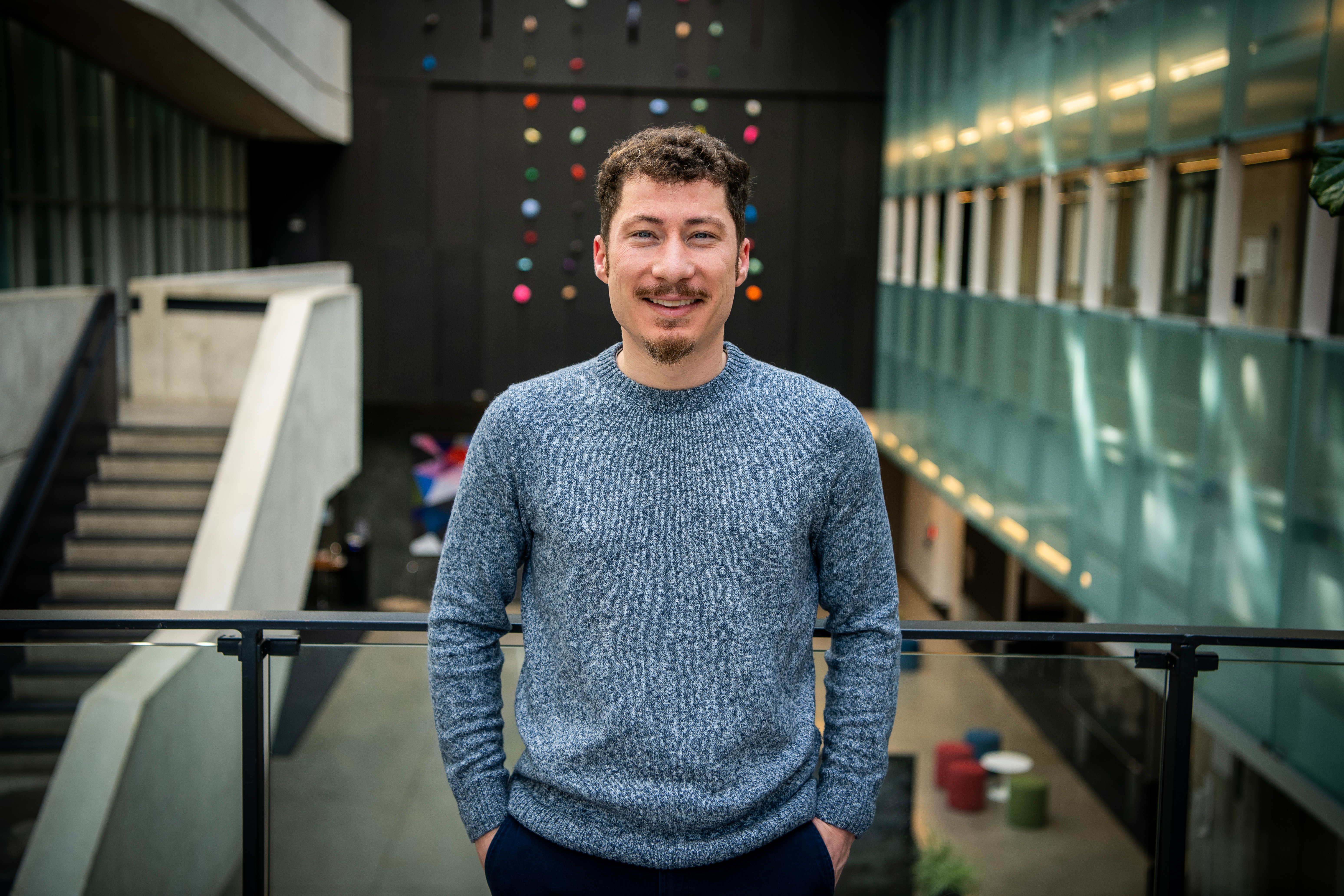Research from the Canadian Hydrogen Intensity Mapping Experiment (CHIME) Collaboration has received first place in the 2024 Buchalter Cosmology Prize.
The prize, announced January 16, 2025 at the 245th American Astronomical Society (AAS) meeting in Maryland, recognizes groundbreaking work in cosmology with the potential to advance our understanding of the universe.
CHIME is a novel radio telescope in British Columbia, originally designed to map the universe’s most abundant element – hydrogen – across a significant portion of the observable cosmos. The collaboration involves scientists from across Canada, the United States, and beyond.
Perimeter Research Scientist Seth Siegel was one of two corresponding authors on the winning paper, Detection of Cosmological 21 cm Emission with the Canadian Hydrogen Intensity Mapping Experiment.
The Buchalter Prize judging panel praised the work as “a promising approach to mapping the large-scale structure of the universe and the first step towards measuring the baryon acoustic oscillations in the power spectrum of 21 cm emission, which is expected to improve our understanding of the nature of dark energy.”
The paper describes CHIME’s recent detection of faint radio emission from neutral hydrogen gas surrounding distant galaxies and quasars. These radio waves travelled for 8 billion years before reaching Earth, offering a new glimpse into the large-scale structure of the universe during a previously understudied era.
“This result is an exciting milestone for CHIME,” says Siegel. “We’ve shown that it’s possible to detect these incredibly faint signals with this type of instrument, which opens the door to creating maps of neutral hydrogen across large cosmic volumes. Those maps will help us better understand dark energy and its role in driving the accelerated expansion of the universe.”
Siegel emphasizes the years of dedicated effort behind this achievement. “It took an enormous amount of work to build the instrument, process the immense amount of data it collects, and develop methods to identify faint cosmic signals amid brighter ones from our galaxy.”
“The first hints of a detection emerged in 2020, during a time of global uncertainty and isolation. It was a deeply gratifying moment for our team, bringing a renewed sense of optimism. This prize now feels like a wonderful acknowledgement of that hard work by the broader scientific community,” Siegel says.
The prize money ($10,000) will be split equally among all members of the collaboration, reflecting the collective nature of this achievement.
Perimeter researchers have a strong history of recognition in the Buchalter Cosmology Prize, which was established in 2014. To date, the awards have recognized research by Perimeter Institute scientists seven times.
Perimeter research associate faculty Ue-Li Pen, and former Perimeter postdoctoral researchers Meiling Deng and Simon Foreman, were co-authors on the paper alongside Siegel.
About PI
Perimeter Institute is the world’s largest research hub devoted to theoretical physics. The independent Institute was founded in 1999 to foster breakthroughs in the fundamental understanding of our universe, from the smallest particles to the entire cosmos. Research at Perimeter is motivated by the understanding that fundamental science advances human knowledge and catalyzes innovation, and that today’s theoretical physics is tomorrow’s technology. Located in the Region of Waterloo, the not-for-profit Institute is a unique public-private endeavour, including the Governments of Ontario and Canada, that enables cutting-edge research, trains the next generation of scientific pioneers, and shares the power of physics through award-winning educational outreach and public engagement.


